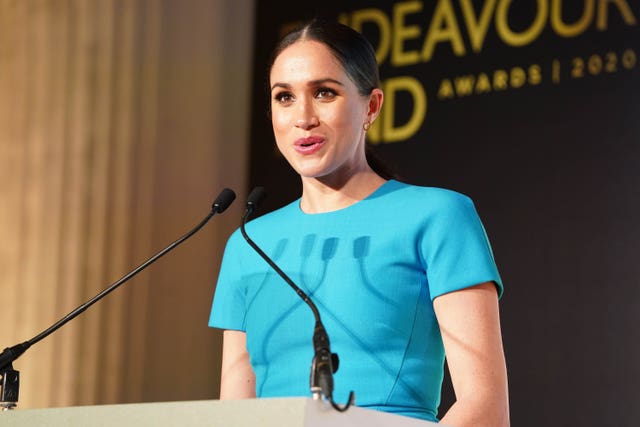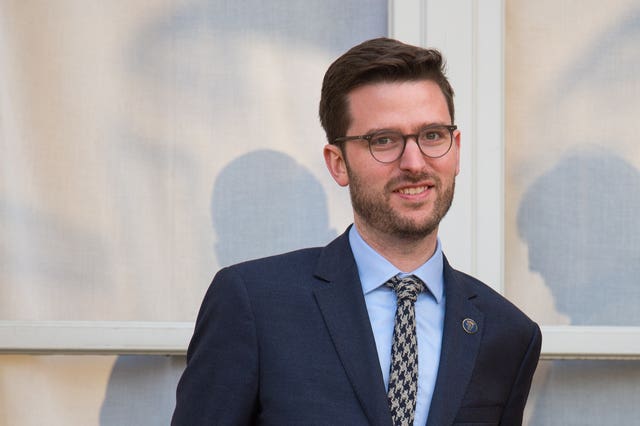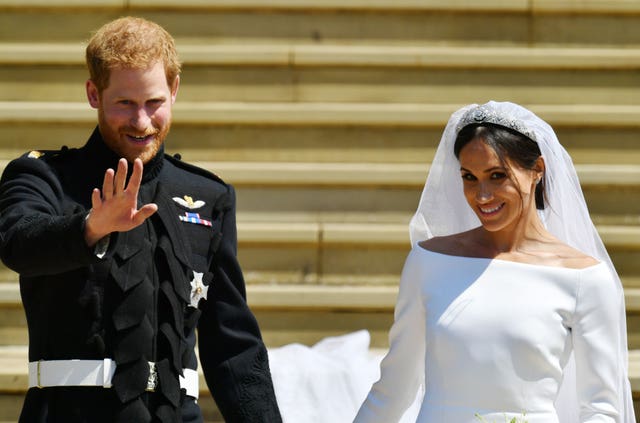Meghan was advised to write letter to father by two senior royals
The duchess was also given feedback and general ideas on the letter by Kensington Palace’s then communications secretary.

Two senior members of the royal family advised the Duchess of Sussex to write a letter to her father which is now at the centre of a legal battle, a new court document has revealed.
Meghan is suing Associated Newspapers Ltd (ANL), publisher of the Mail on Sunday and MailOnline, over an article which reproduced parts of the handwritten letter sent to her estranged father Thomas Markle in August 2018.
The legal document, submitted to the High Court by the duchess’s lawyers, also showed that Meghan allowed an unnamed individual to speak to the authors of the Finding Freedom biography to prevent “further misinformation” being spread about her relationship with Mr Markle.
She was also given feedback and general ideas on her letter to her father by Kensington Palace’s then communications secretary Jason Knauf, but maintains the letter was the “complete opposite of a ‘media strategy’”.

The document told how Meghan turned to the senior royals following her distress over the media coverage about her father and because of her position “as the newest member of the royal family who wanted to follow protocol”.
Mr Markle pulled out of attending Harry and Meghan’s royal wedding after he was caught staging photographs for the paparazzi and suffered a heart attack.
He repeatedly spoke to the media and later claimed he had been “shunned” by Meghan.
The document added: “In accordance with the advice that she had received from the two members of the royal family, the claimant decided (in about the first week of August 2018) to write a private letter to her father in an attempt to get him to stop talking to the press.”
The document did not name the members of the royal family who advised Meghan.
But the senior royals at the head of the family are the Queen, the heir to the throne the Prince of Wales and second in line the Duke of Cambridge.
The document also showed that the former Suits star shared a draft of the letter with her husband Harry and Kensington Palace’s then communications secretary Jason Knauf as “this was a deeply painful process that they lived through with her”.
It said Mr Knauf provided “general ideas” and “feedback on the draft but no actual wording”.

The amended reply from Meghan’s legal team stated the duchess shared a draft – of the notes she spent many hours writing on her iPhone over several weeks – with Harry and Mr Knauf.
The document said: “The genesis of, reasons for and intended use of the letter was the complete opposite of a ‘media strategy’.
“It was a private letter written and sent by the claimant to her father, on the advice of senior members of the royal family, in an attempt to protect her family, including her new family members, from further media intrusion and embarrassment to the institution.”
Mr Knauf is now the chief executive of the Cambridges’ Royal Foundation.
In September, ANL was given permission to rely on the Finding Freedom biography, which was published in August – in its written defence to Meghan’s High Court claim.
The document from Meghan’s legal team says that neither the duchess nor Harry co-operated with the authors of the book, did not meet with them and were not interviewed for the biography, formally or informally.
But it also showed that Meghan indicated to someone she knew had been approached by the authors Omid Scobie and Carolyn Durand that the “true position” could be “communicated to the authors to prevent any further misrepresentation”.

At a High Court hearing last month, Mr Justice Warby, who is overseeing the case, agreed to Meghan’s application to adjourn the trial – which was due to start in January next year – until next autumn after hearing from lawyers for both parties in a private hearing.
In a heavily-redacted ruling published on Wednesday, the judge gave further information on agreeing to the adjournment, but did not give any details of the duchess’s reasons for applying for the delay, saying it was “unnecessary, and undesirable” to do so.
Buckingham Palace has declined to comment.





